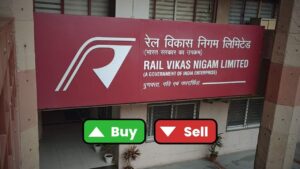Technical program management plays a crucial role in harmonizing complex projects and initiatives, ensuring alignment between technology solutions and business objectives. In the context of Configure, Price, Quote (CPQ) systems, technical program managers facilitate the implementation of automated quoting processes, enhancing efficiency and accuracy in sales operations. By refining workflows and integrating CPQ with other systems, they enable organizations to respond swiftly to customer needs, thus ultimately driving revenue growth and operational merit.
As a Senior Global Technical Program Manager, Kiran Konakalla led a significant initiative to implement Configure, Price, Quote (CPQ) across the delivery business. This project was about much more than simply improving the technological infrastructure; it was an attempt to alter the way in which the corporation tackled a number of global problems which had long hampered the sales process, especially in high-growth areas such as the US and Canada regions.
Before the CPQ implementation, Kiran observed that the sales teams used to depend upon the relied fragmented processes that relied heavily on spreadsheets and manual data entry. These outdated methods resulted in challenges such as maintaining pricing coherence and the labor-intensive process of creating quotes for deals involving multiple stores. The absence of a dedicated CPQ system frequently led to inaccuracies, causing delays in deal closures and diminishing overall sales productivity.
Kiran’s solution involved implementing CPQ and integrating it with a Contract Lifecycle Management (CLM) system. By customizing CPQ with Lightning Web Components (LWC), he enabled sales representatives to manage multiple store accounts per brand, significantly reducing the time required to generate quotes. The incorporation of automated pricing rules ensured consistency across various markets.
“Integrating CLM with Salesforce, along with CPQ was pivotal in automating the contract lifecycle and creating a seamless sales process”, he remarks. With CPQ generating quotes and CLM facilitating electronic signatures, sales representatives no longer had to navigate multiple platforms, leading to reduced administrative overhead and faster deal closures. This integration also provided real-time visibility into the status of contracts and quotes, enhancing collaboration between sales and finance teams.
This, reportedly, yielded a 35% increase in sales efficiency, particularly in the US and Canada regions. Sales representatives could manage multiple store accounts, handle more deals, and close them quicker. This newfound efficiency translated to quicker revenue realization, reduced errors, and higher morale among sales teams, who could now focus on customer interactions rather than administrative tasks.
Kiran’s experience in managing global technical programs highlighted the importance of understanding the specific needs of sales teams. “The project was not limited to software implementation; it was about customizing solutions to navigate the complexities of multi-store accounts and diverse regional pricing structures”, he shares.
Leading this initiative was one of the most rewarding experiences. The significant improvements in sales efficiency and the reduction of administrative burdens allowed sales representatives to concentrate on building relationships and closing deals.
In a competitive market, automation and real-time data prove to be critical in enhancing team performance and driving overall business growth. Through this project, Kiran not only highlighted the importance of integrating technology with business strategy but also demonstrated the lasting impact a well-executed solution can have on an organization.












